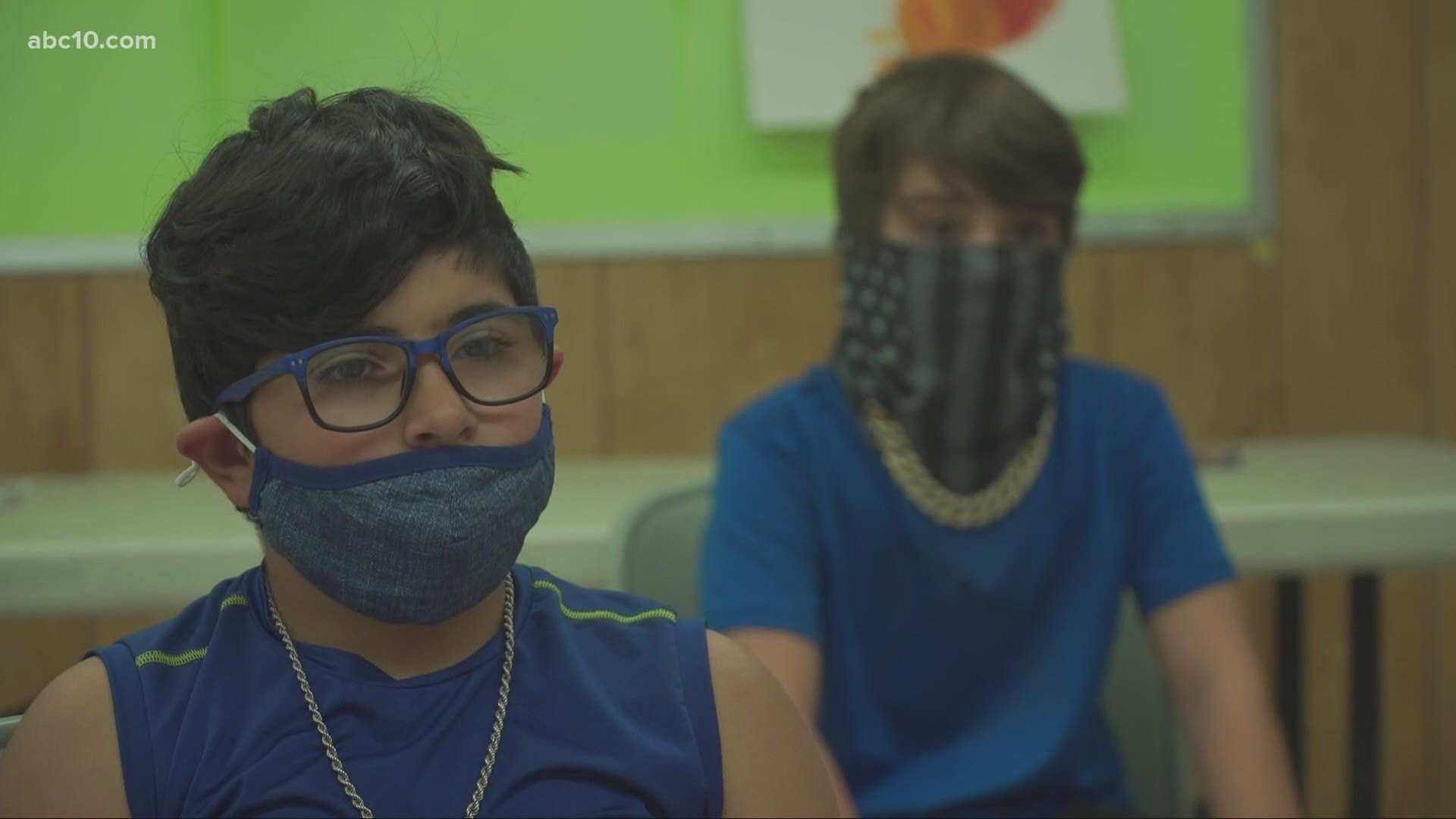SACRAMENTO, Calif. — Playing, learning, and socializing. Three things children can't easily get from a computer screen.
Distance learning was supposed to be a temporary solution for education when coronavirus concerns first prompted school closures in the spring. Now it's a part of life indefinitely. For essential workers struggling to find child care this fall, one non-profit organization is getting creative to fill the need and expand its services.
"They see the other kids and peers and they just, their eyes light up," Sharna Braucks, President and CEO of YMCA Superior California, said.
The YMCA is working to help the community in education and childcare where schools cannot. The 150-year-old nonprofit has kept 11 emergency day cares in Sacramento open throughout the course of the pandemic. It was able to do so by partnering with local churches and synagogues with had unused space to fill.
"The YMCA has created pandemic pods throughout the city," Braucks said.
Each pod is limited to 10 children and three staff members. Parents drop off their children at the door, where the children have their temperature checked.
In San Joaquin County, where more than 60% of students are English learners, in foster care, or on free and reduced lunch, the local YMCA is working to expand its service. It currently has three pods at Calvary First Assembly of God Church, where half of its kids are on free and reduced lunch.
In the next two weeks, YMCA of San Joaquin will open a second camp at Horizon Christian Fellowship.
"The momentum is starting to pick up," Dan Chapman, President & CEO of YMCA of San Joaquin, said, pointing to the program's sliding fee scale and affordability and availability of scholarships as incentives for families.
As the largest child care provider in the country, the nonprofit is working to expand the learning pods where schools cannot. However, the issue is funding. YMCAs are working on raising donations, securing grants, and partnering with community members with facilities as schools are limited to distance learning. The plan is for school age children to come with their computers and homework during school hours and spend the latter part of the day participating in other activities.
"It's to help not just our community be resilient, but teach resilience to our children," Braucks said.
FOR NEWS IN YOUR COMMUNITY, DOWNLOAD OUR APP:
►Stay in the know! Sign up now for the Daily Blend Newsletter



